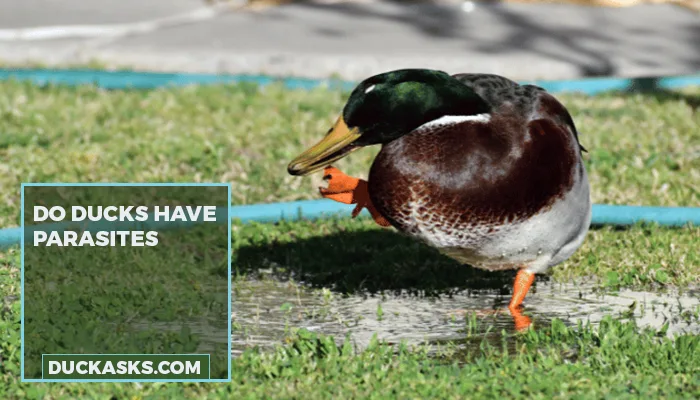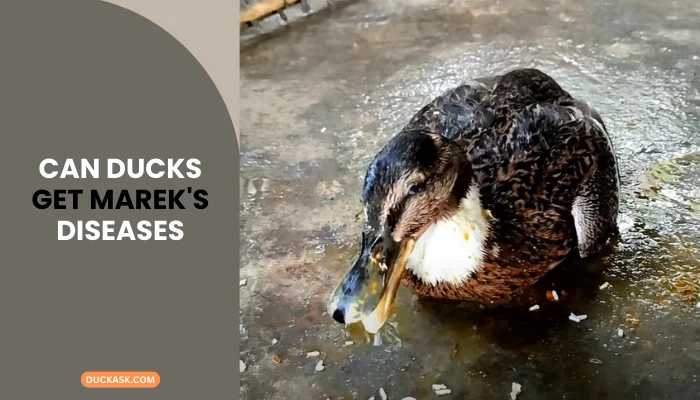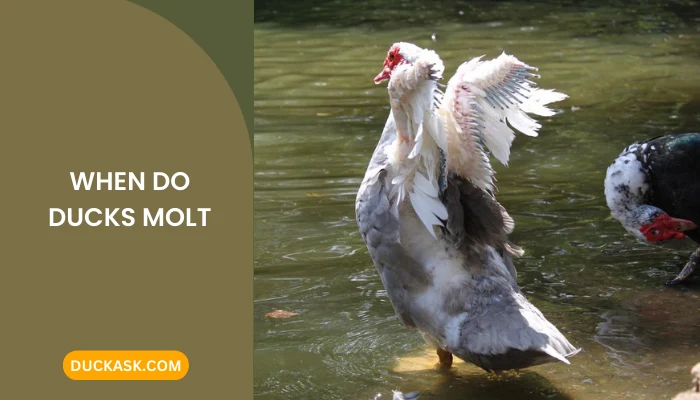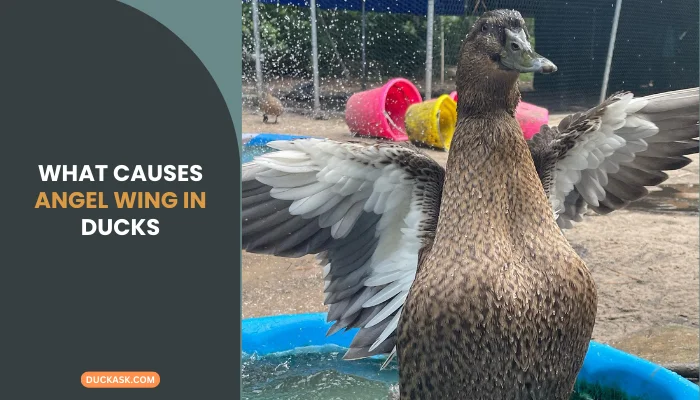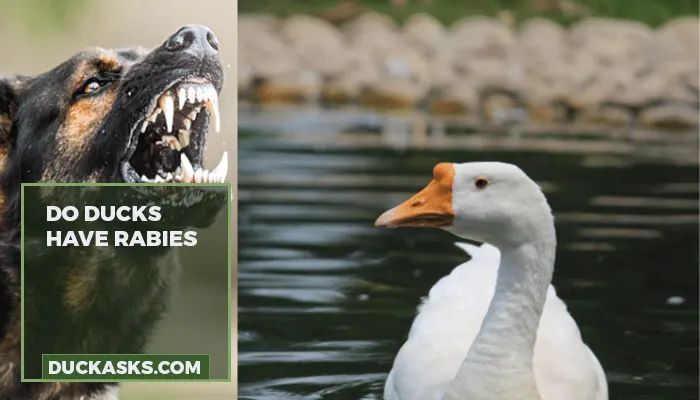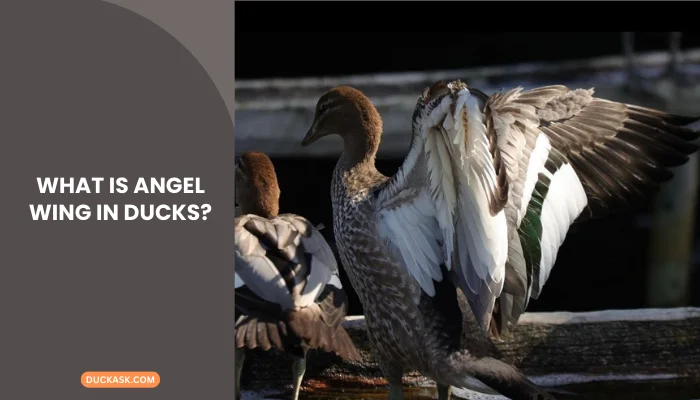What Causes Ducks to Lose Their Feathers?
Ducks without feathers are not a good sight to look at. But what causes ducks to lose their plumage?
It can be any of the following reasons-molting, virus, bacteria, dietary deficiency, rough mating, or lack of access to clean water. So, pinpointing the exact reason will take some effort on your end, as there are many possible reasons.
Our article will make your job a bit easier as we will tell you all the potential reasons, their solutions, and what precautionary measures you can take to tackle this.
Looking for more articles about duck diseases:
Why Is My Duck Going Bald?
Read these potential causes and match the symptoms with your duck’s symptoms to find out the exact reason behind it going bald.
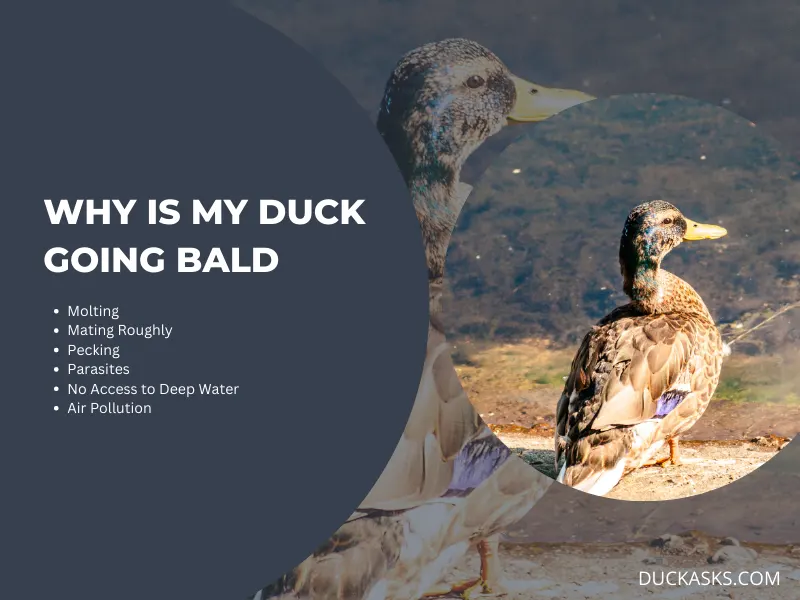
Molting
Molting is a process where ducks shed their old feathers and grow new ones. During this process, you might find some bald patches on their body.
It’s important for their overall well-being and is completely natural. Most duck breeds are known to go through the process of molting twice a year.
Mating Roughly
If there’s a bald patch around the head and the neck of the duck, then it could happen due to mating.
When ducks don’t get access to ponds or clean water, they can be forced to mate on the ground, which can be a bit rough for them. This can cause some bald spots around the neck or head.
Pecking
Pecking can also cause ducks to lose feathers. Now, if you are not giving them enough food to eat, they’re gonna start pecking at each other’s feathers soon enough.
And they will continue to do it until they see the red blood. Another thing that can lead to pecking is not giving them enough space.
Also, sometimes when new ducks are introduced, the older ones can start attacking the new ones. In this sort of case, you need to separate the bullies for a week or two.
So, keep an eye on these things to make sure ducks are not attacking each other.
Parasites
If you see bald red spots on your ducks, then it’s a sign of the parasites. You need to give them a complete check-up asap and look for fleas and lice in their body.
They tend to attack the head, mouth, and bellies of the ducks mostly. If you’re certain that it’s a parasite problem, you need to use chemical sprays to get rid of them.
But you need to spray on not only the affected ones but all of the ducks and any other birds in the same room. That will ensure that the parasites are gone for good.
No Access to Deep Water
To stay fresh and comfortable, ducks need deep water where they can swim and clean themselves.
If you fail to give them such facilities, they can develop wet feathers condition. That will make the plumage dirty and cause the ducks to do over preening.
In addition, this will also cause bacteria and other insects to attack the ducks. All these can make the ducks lose plumage.
Air Pollution
Can environmental changes or pollution contribute to feather loss in ducks? Yes, they can.
When duck poop starts to break down, it releases gas like ammonia and pollutes the air.
And if there’s not enough fresh air coming into the room, ducks may breathe the polluted air with ammonia, which isn’t good for their health and makes them sick.
The low humidity also makes the feathers dry and causes them to fall out.
How Do You Treat Duck Feather Loss?
To find the right method of treatment, you have to find out the exact cause behind the ducks losing plumage.
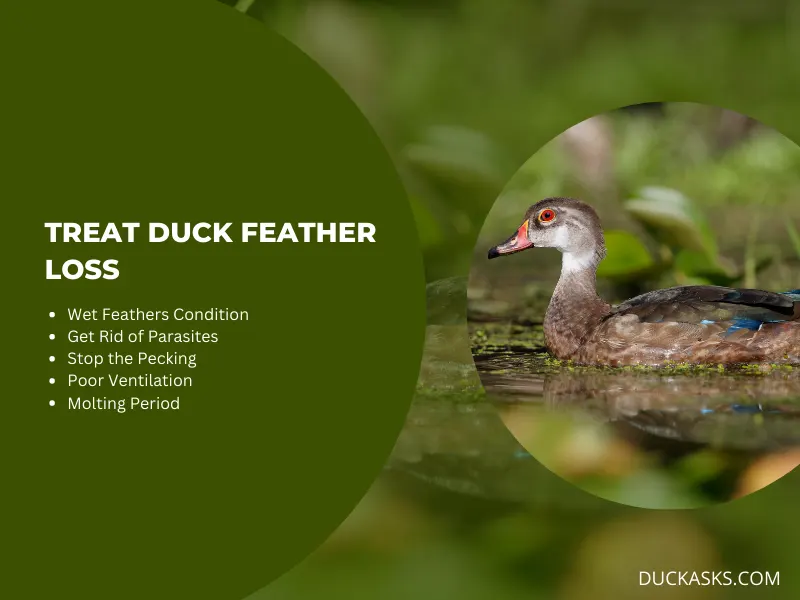
So, give the duck a thorough check, and find what’s causing the issue. And once you’ve figured it out, make a plan of treatment.
Wet Feathers Condition
If you see the duck is suffering from wet feathers condition, then you need to give it a proper cleaning. Then, find a pond or a source of deep water where the ducks can swim regularly. That way, they will start to recover soon.
Get Rid of Parasites
If fleas and lice are causing the ducks to lose feathers, then chemical sprays can help.
You need to use spray or powder featuring trichlorfon or malathion. That will kill the parasites and start the recovery process. But before you use any chemical spray, it would be wise to talk to your vet about it.
Stop the Pecking
There can be multiple reasons for pecking. But it’s not hard to figure out the exact reason. If you think the food given to the ducks isn’t enough, increase the amount and see if there are any changes to their behaviors.
Lack of space can also be a problem and cause pecking. If the ducks are forced to live in a cramped space, they often act aggressively and attack other ducks.
But it won’t happen if you act according to the bird density standards and give them 1 square meter per duck. Then there will be enough space for them to rest and walk around, which will keep them calm.
Sometimes bright lighting can also lead to pecking. In that case, just remove that light and replace it with something less bright.
Poor Ventilation
If the lack of humidity is the reason behind the feathers falling out, you need to make arrangements for fresh air to come into the room all the time.
Molting Period
Molting is a natural process, so you don’t need to worry about that, but you gotta take care of them during the process for sure.
You have to remember that it’s a stressful time for them as a lot of things are going on. They are shedding their feathers, and their skin is vulnerable to all kinds of things like insects, mosquitos, and parasites.
Also, the new feathers that are coming in are quite soft. If you try to pick them up, it can hurt sometimes, especially if any new feather gets broken.
But once the feathers are fully grown, it doesn’t hurt. So, until then you need to treat them very gently and protect them against other threats.
Another to keep in mind is that it takes a lot of nutrition to produce new feathers. So, you should change to a diet with an extra 25% protein. You can also give them supplements like probiotics to support their immune system during this period.
Are There Any Specific Diseases that Can Lead to Feather Loss in Ducks?
Yes, specific diseases like the psittacine beak and feather disease virus and polyoma virus can make ducks sick and cause the loss of feathers.
Staphylococcus, a bacteria, can also cause problems for ducks and make their feathers fall out.
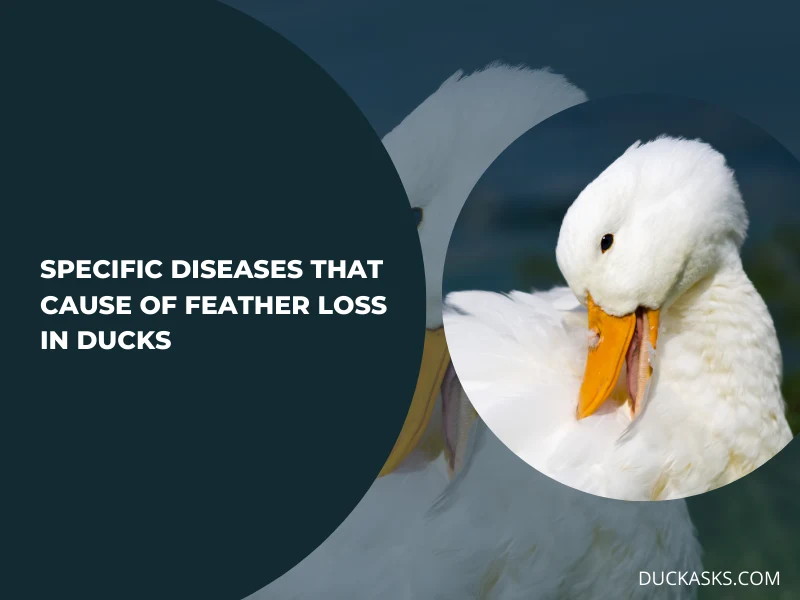
In addition, parasites like Giardia or kidney and liver problems can also cause loss of feathers.
How Do You Diagnose These Diseases?
It won’t be possible for you to diagnose these diseases by yourself. You need to take the duck to a vet for that.
He’ll ask you about any previous history and then go on to do a physical examination to narrow down the list of possible diseases.
He might need to do a couple of diagnostic tests such as blood tests, fecal tests, and X-rays to accurately diagnose the disease. In rare cases, he might need to do a skin biopsy test as well.
Can the Diseases be Treated? Psittacine beak and feather disease is fatal and directly affects the immune system. So, it can’t be treated.
However, other skin conditions caused by viruses or bacteria should respond well to antibiotics and antiviral medicines. For parasites, you can use chemical sprays or antiparasitic drugs.
How to Prevent Feather Loss in Ducks?
There’s not much you can do to prevent diseases like Psittacine, but you can surely take some precautionary measures to protect against other causes.
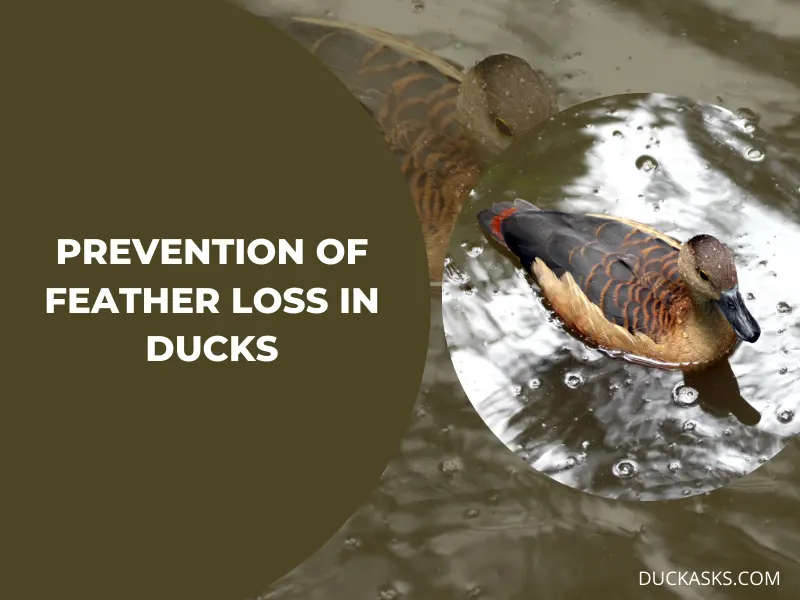
Provide Clean Water
Dirty feathers can cause all kinds of problems for ducks. So, make sure you arrange fresh and clean water for them to swim regularly.
Proper Diet
Make sure there’s no nutrition deficiency in their diet. It will keep them healthy and prevent unnecessary feather loss.
Spacious Room
Give them enough space to move freely. It will make it less likely for them to become aggressive and attack other members.
How to Identify Feather Loss in Ducks?
Check their body for bold patches from time to time. If you notice any naked area on their body, then they might be losing feathers. In that case, check the other ducks as well, as they might be affected by the same issue.
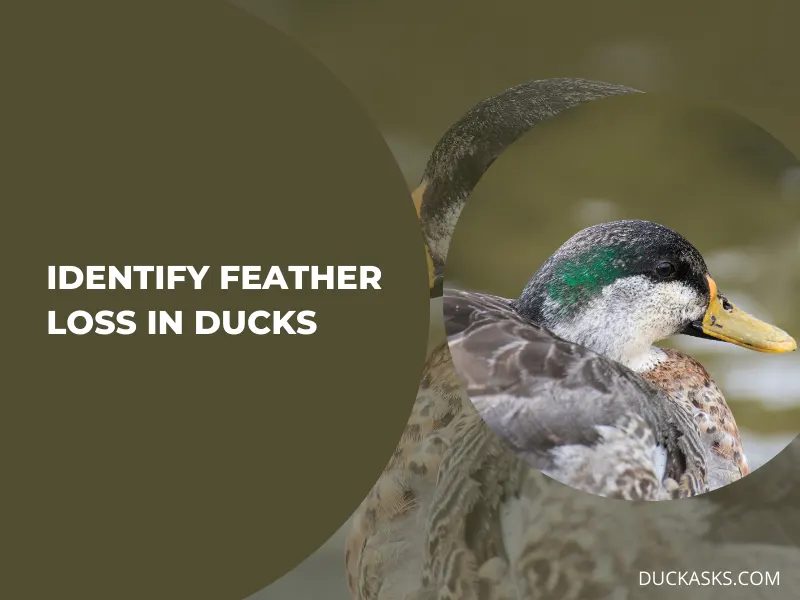
What Do Ducks Look Like When They Molt?
During molting, male ducks, also known as drakes go through a muted transition. They start to lose their bright-colored feathers first.
So, they might look like females and you may think there’s suddenly an increase in female ducks and a decrease in drakes.
Nevertheless, both female and male ducks lose their flight feathers and are unable to fly. But they won’t be naked completely. They keep their waterproof feather about them to hide the molting.
So, you might not even notice that they are molting except for the feathers on the floor.
Conclusion
The reason behind my feather loss can be any of the above-mentioned reasons.
It’s for you to check the duck properly and find out the real issue. If the issue can be solved by yourself, get on with it asap.
But if it’s a serious issue, then you should hurry to a vet and get your duck examined. He will be able to direct you to the right course of action for your duck.

